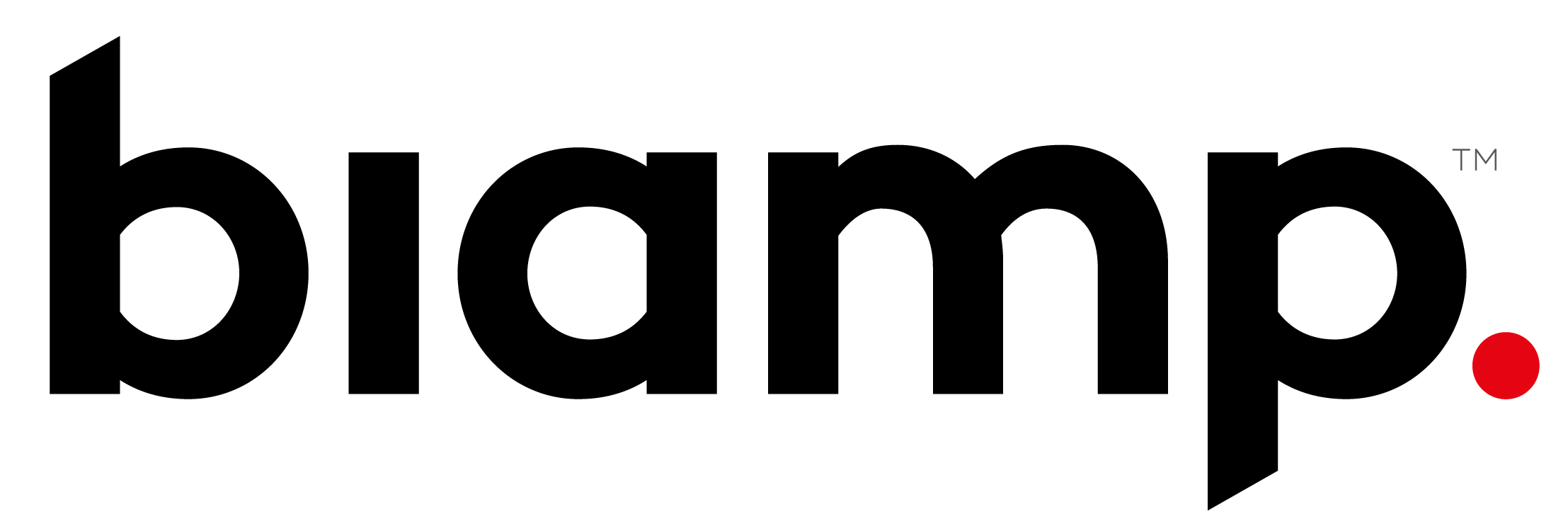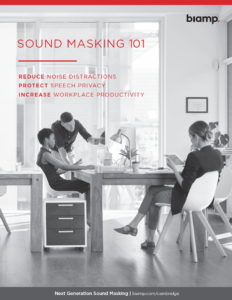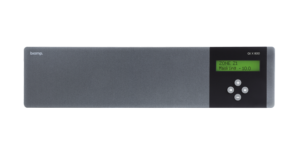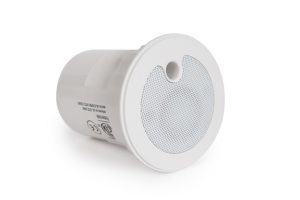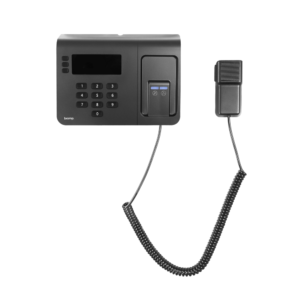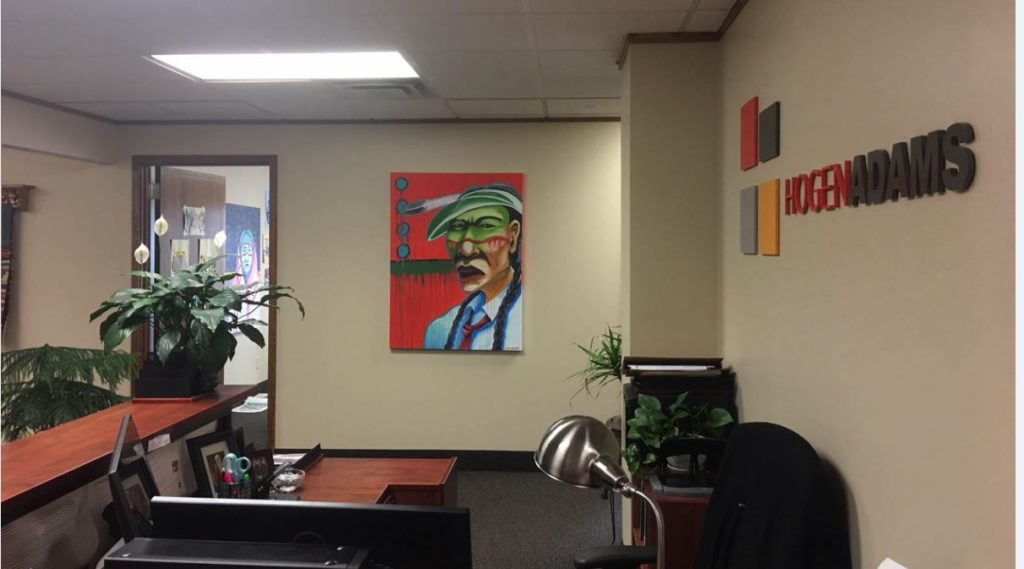Legal
Sound Masking in Legal Environments
Law offices, law enforcement agencies, and courtrooms require a high level of speech privacy to ensure that justice is carried out fairly. Victims and witnesses need to feel comfortable giving statements, while the accused needs to discuss their case with their counsel privately.
A sound masking system from Cambridge Sound Management in legal environments accomplishes both speech privacy and security needs by adding a low-level unobtrusive background sound specifically engineered to protect confidentiality and reduce the intelligibility of speech.
“Since installing sound masking, meetings in our conference room can’t be overheard elsewhere in our office space, and neither can conversations in adjacent offices. I wish I had known about sound masking earlier!”
– Vanya S. Hogen, Partner, Hogen Adams
Read more legal industry case studies
Industry Challenges

- Ineffective acoustic treatments can lead to incomplete statements due to lack of privacy and comfort.
- If victims, witnesses, and clients feel that their conversations are not private, they may not give complete statements.
- The rights of the accused can be compromised if conversations are not kept private
- Sidebar meetings, discussions between clients and attorneys, discussions between judge and counsel, and jury deliberations can easily be overheard within the courtroom.
- Unwanted noise from the adjoining corridors can interrupt court proceedings.
- Interview rooms and processing areas have walls built to the ceiling not to the deck, leading to ineffective sound blocking.
- Overhearing statements can pose a threat to both witness and victim safety.
Are you ready to add sound masking to your space? Click here to start planning your sound masking project with one of our professionals.
Applications
Challenges
- To minimize construction costs, demountable walls are being installed which only extend up to the ceiling, not to the deck, allowing spillover of sound through the plenum into adjacent work areas.
- Workers expect a level of speech privacy in collaborative spaces, such as conference rooms, that is rarely accomplished with the construction techniques being used.
Cambridge Sound Management sound masking systems
- Cover sound that “spills” between adjacent work environments.
- Mask conversations in adjoining hallways from being distracting to conference room meeting participants.
- Mask conversations in conference rooms from being overheard in adjoining offices or hallways.
- Increase client comfort when discussing legal matters.
Challenges
- Interview rooms and processing areas have walls built to the ceiling not to the deck, leading to ineffective sound blocking.
- Overhearing statements can pose a threat to both witness and victim safety.
Cambridge Sound Management sound masking systems
- Help provide speech privacy in the processing areas, interview rooms, and corridors to protect the rights of the accused, while minimizing construction costs.
- Increase speech privacy in interview rooms, allowing victims and witnesses to give full statements confidentially.
Challenges
- Sidebar meetings, discussions between clients and attorneys, discussions between judge and counsel, and jury deliberations can easily be overheard within the courtroom.
- Unwanted noise from the adjoining corridors can interrupt court proceedings.
- Confidential proceeding conversations can be overheard in adjacent courtrooms or in adjoining public areas.
Cambridge Sound Management sound masking systems
- Enhance the privacy of sidebar conversations.
- Help to make jury deliberations and conversations between clients and their counsel unintelligible to others.
- Allow private conversations between judge and counsel without fear of the jury or clients overhearing.
- Reduce distractions from unwanted noise and conversations within and surrounding the courtroom.
Challenges
- An increase in operating costs has led businesses to maximize existing space, leading to more employees in the same workspace.
- With smaller workstation footprints, noise levels increase significantly and worker speech privacy decreases.
- Cubicle wall heights have dropped significantly to enable better worker collaboration and provide a more open environment.
- Most worker mistakes and lower individual productivity can be attributed to workplace distractions such as overheard conversations.
Cambridge Sound Management sound masking systems
- Improve worker performance nearly 10% by reducing conversational distractions (per scientific research).
- Address the need for acoustic treatment outlined in upcoming LEED Commercial Interiors Certification. Also mitigates the acoustic issues created by windows to meet the LEED requirement for daylighting and views.
